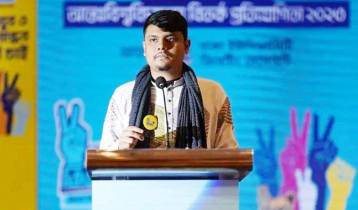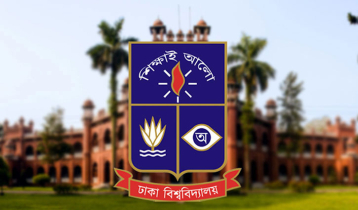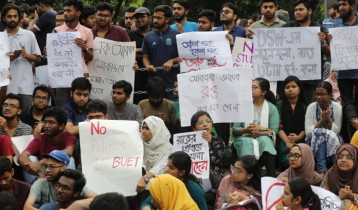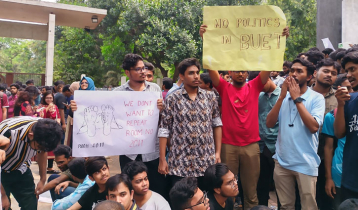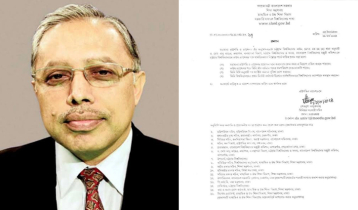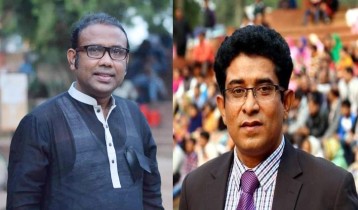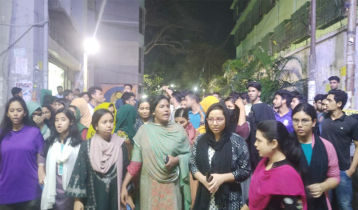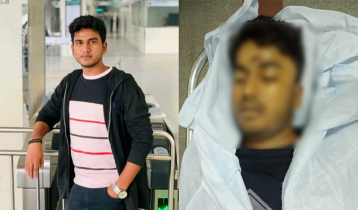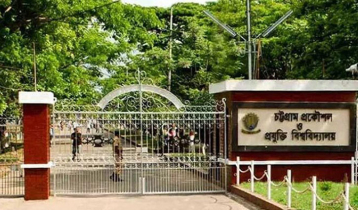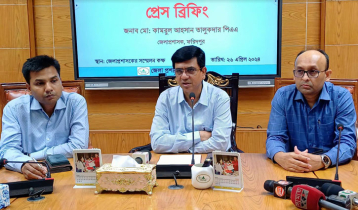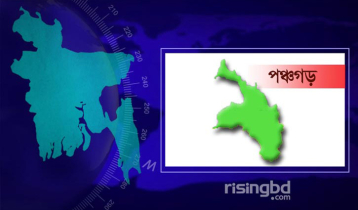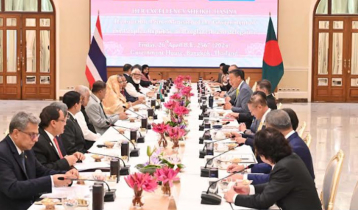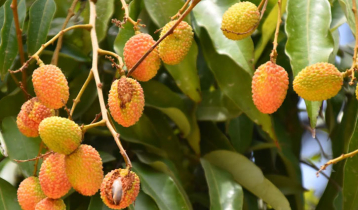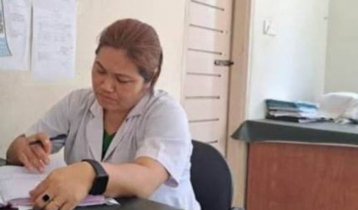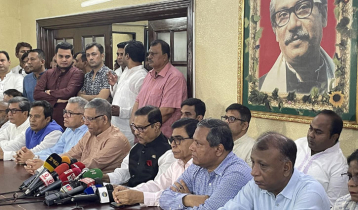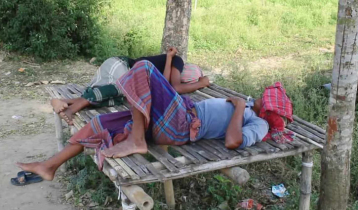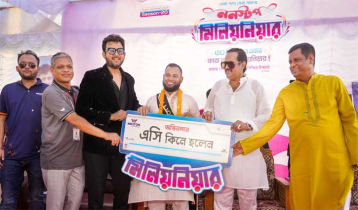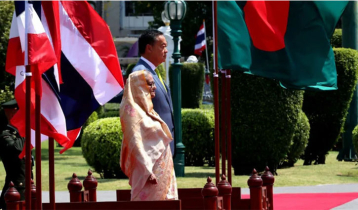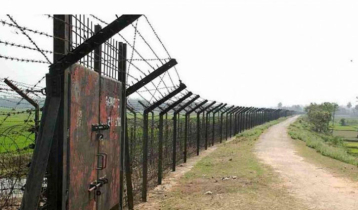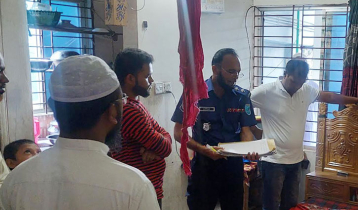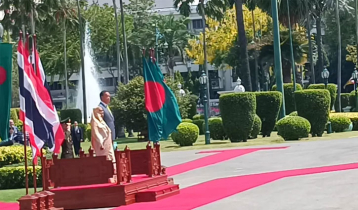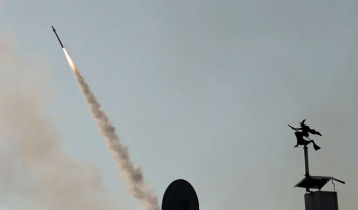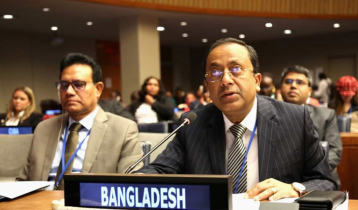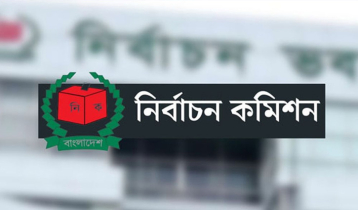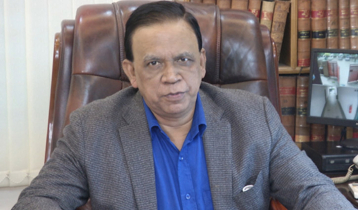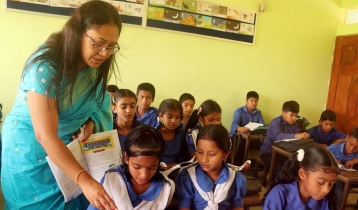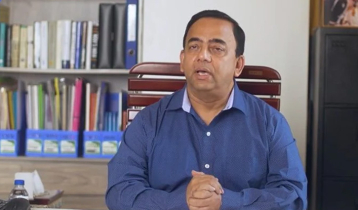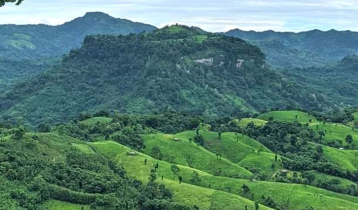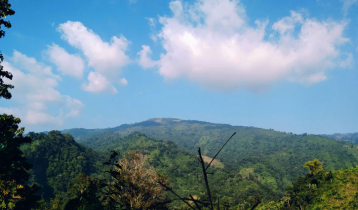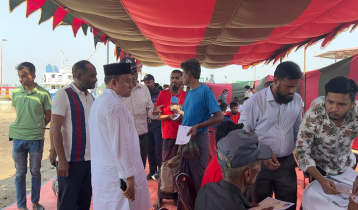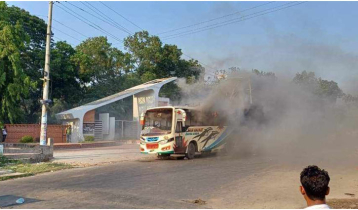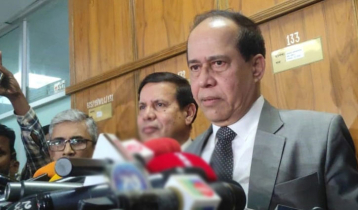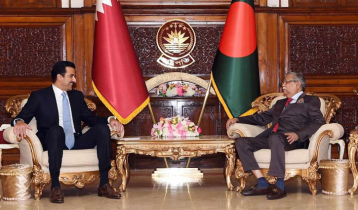Book Review: The Vocation of Teaching: An Uncustomary Obsession
Gazi Abdulla-hel Baqui || risingbd.com
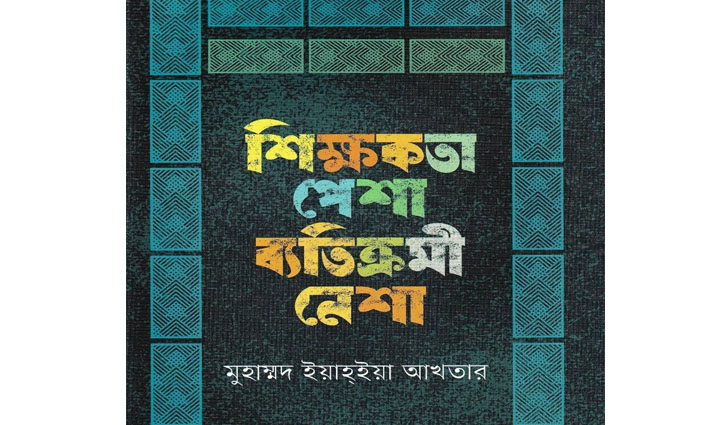
‘Shikhokota Pesha Baaticromi Nesha’ (The Vocation of Teaching: An Uncustomary Obsession)
Author: Prof. Dr, Muhammad Yeahia Akhter.
Publisher: Jatiya Sahitya Prokash (National Literary Publication)
Period of Publication: February-2022,
Cover Design: Mostafiz Karigar
Number of Pages 480, Hard Cover, Price: TK.-800/- US $ 10
ISBN: 984-70000-046-9
Of all the genres of literature, autobiography is a very important genre in the field of literature across the world. Its significance, relevance and message lie in the authenticity of expression, veracity of statements and personal testimonies. The reason is that people write their autobiographies as they encounter multiple challenges in their life and how they find ways to overcome them. The total output is the gaining of experiences and so they put all these in black and white to make their life’s portrayal eloquent, persuasive and convincing. Such life stories bridge the gap between people of different ages and backgrounds, forging connections between old and new generations.
In fact, autobiography is generally written about the accounts of personal life history; or it may be documented in the form of biography, or diary where day-to-day personal affairs are recorded, or in the form of memoir. But, the book titled ‘Shikhokota Pesha Baaticromi Nesha’ (The Vocation of Teaching: An Uncustomary Obsession) written by Dr. Yeahia Akhter, Professor in the department of Political Science, Chottogram University, under review may be of different nature: the writer himself desires to brand it as the ‘Academic Autobiography’. Now, how far this opinion can be deemed proper and at the same time acceptable requires proper evaluation of the style the author followed in penning this voluminous book.
In this autobiography ‘Shikhokota Pesha Baaticromi Nesha’, Prof. Yeahia recounts a total of his first forty years, beginning with the events of his childhood, family matters, unavoidable sorrows and glaring problems. But combating all such hindrances that thwarted his attempts to climb the ladder’s top, he slowly but gradually could behold the bright faces of success. This is nothing but the go of the world and it is applicable to those persons whose endeavour does not languish to maintain a kind of continuity.
The book contains a total of eleven chapters and all these chapters replete with the dissection of the writer’s academic life and description are presented with an air of academic mode and manner. As the writer himself is a teacher, it has become easier for him to perceive the internal reality existing on the campus and to present it to the readers quite comfortably. Moreover, as the teacher, bereft of both colour and party, it has became possible for him to highlight the political situation of the intuitions without any bias and also in vivid an objective manner.
The author, who is Professor of Political Science, does not consider his job like other jobs belonging to various professions. In the first chapter of the book, the writer very briefly focuses on the family including his father, mother, brothers and sisters. In the same chapter, some information of his childhood days, the events of his boyhood days, the period of his youth along with his school-college-university days, are delineated. The same chapter contains the interesting event of how a young man having the higher education could gradually become a teacher of a university. The third chapter encompasses the information regarding the relation of the author with his friends and other tidbits of his early life. Experiences acquired by the writer at the time of pursuing higher education in Canada and Australia are embedded in the second and fourth chapters, in which the readers may come across many examples of how a person can brighten the face and highlight the fame of his homeland by exhibiting his graceful behavior and manners through his responsible activities in alien cultural environment. A large part of the fourth chapter conveys to the readers the experiences gained by the writer as a part-time worker in a foreign organization in a different cultural setting.
The fifth chapter tells us about the visit of the writer to America for three times and the wealth of experiences accrued by him out of those visits. Of the visits, the two visits were his personal, and the other was held and at the invitation by the American government as its guest and during that visit the writer had the opportunity to travel to six states and to participate in the programmes at Washington DC. This chapter also informs us of the writer’s experiences of his visits to different places and provides analytical description of his joining the various programmes. Prof. Yeahia also mentioned that he could observe the stimulating environment existing on the campuses of a number of universities including the world famous universities like Harvard and MIT where he seized the opportunities of meeting the teachers and students and exchanging views with them and also he became acquainted with academic activities existing there. However, his perception, observation and outcome of his experiences of these visits, indeed, carry values especially for those who are associated with the teaching profession. In the sixth, seventh and eighth chapters, the writer very adroitly and skillfully presents how he performed academic and other related activities of the department; not only this, in these chapters, the writer has vividly presented his both bitter-sweet experiences in carrying out his responsibilities and duties as the head of the department of Political Science, mainly focusing on conducting of different meetings, taking of decisions, affairs related to the appointment of teachers and combating other problems, employing various strategies. The eighth chapter deals with the teacher-writer’s deliberately providing inspiration to the students and the matter of standing by the students in their weal and woe; as a result, the real picture of teacher-student cordial relationship has vividly been presented.
The ninth chapter of the book is very important in the sense that in this chapter Prof. Yeahia Akhter emphasizes that the academic departments are more or less off track, disregarding the academic disciplines; these are suffering from professional pollution, and harmful effect of teacher-student dirty party politics, the political influence in the events of appointing teachers, prevalence of money transaction, exercise of malpractice and corruption. Thus, the whole academic environment has lost its congeniality, and as a result the sacred seat of acquiring higher learning is shorn of its both academic and non-academic transparency. The tenth chapter illustrates a conspicuous example of how a teacher could have been able to use his adverse hours in constructive academic activities during the terrible onslaught of the Covid-19 pandemic. Towards the end of the book, i. e. in the last chapter, the writer has made attempts to present the outcome of his total discussion and analysis in a comprehensive way. Though the analytical expressions are not so exhaustive, the grounds on which the writer’s main thoughts and intention are based are unquestionably as significant as noteworthy. He soulfully inclines that all the public universities should emerge as the centres of excellence, cancelling all the so-called motives nurtured for long and also dispelling the existing ills and evils that have already tarnished their reputation and corroded the congeniality and vital life force of the higher seats of learning. Therefore, he has dedicated the book to ‘the patriotic teachers devoted to cultivation and dissemination of knowledge’.
In the present autobiography, though there is the portrayal of the family affairs, the most of the parts of the book deal with the academic matters i. e. teaching and education-centered affairs. In view of that, this book can be called academic autobiography. The writer does not consider the teaching career as a job like other vocations. The writer explores a successful teacher as a lover of education, a close and faithful friend to his students and a devotee to his profession who is engrossed in intensive research and critical writing. According to the writer, a professor must be a friend, guide, path-finder to his students; he tries to sharpen their intellect and will teach them basic aspects of ethics and morality.
Through this autobiography, the author speaks unhesitatingly to his target readers and also to people who are more or less worldly life-concerned. The function of any good book, especially the autobiography, is to leave such a legacy for the present readers and as well as for those interested souls still unborn. By writing this autobiography, Prof. Yeahia hopefully wants to share his successes and achievements and also failures and futilities he has undergone, and also lessons learnt through inspirational stories and anecdotes.
The writer, like postmodern writers, has combined the fringes of romantic life with reality skip between truth and imagination, time and place, without warning. He has done the same with his autobiography, where readers are eager to move through fanciful and opulent description of life’s ups and downs in his place of work. The most interesting matter about the writer is that he has unlocked his storehouse of facts and secrets, keeping nothing back. In this context, it can be said that people can have a glimpse of a real professor who is very much faithful to his own sacred profession. Moreover, the people by going through such an autobiography become imbued to face the struggle of life. They being fortified with newer inspiration try to explore the path to success. Thus, countless writers have enriched the treasure of autobiographies and it is universally acknowledged. Different types of autobiographies are written by professionals of different nature and putting on moods nurtured on the basis and ethics of their professions. So, different types of autobiographies give different tastes, flavor and vibrancy.
In this autobiography, the author mainly attempts to capture important elements of his academic life. He deals not only with his career as a potential university teacher, but also his gradual development as a writer and critic as a powerful voice of protesting and highlighting the ills of the society has been possible; he also uses emotions and facts related to family life, relationships, education, travels, and above all various types of inner struggles he has undergone from time to time.
The writer is basically a thinker of evil and ills existing in the society and on the institution campuses, so he writes articles, features and other forms of writing. By observing the inmates’ movements on the university premises and knowing the results of various professional activities, entering into relation with his colleagues and students, the author possibly gained both welcome and unwelcome experiences and these have acted as inner forces to write such an autobiography, which the author himself yearns to term as ‘Academic Autobiography’.
However, such a publication is worth-reading and at the same time worth-keeping, because it can give the future readers a wealth of information of a teacher’s life. Through his delineations and portrayal of different situations, using appropriate terms and phrases, Prof. Yeahia accentuates and disseminates his knowledge. The author is worrying aloud about the ethics of his own profession.
He thinks a teacher is someone who really cares about his or her students and wants to give them better lives and opportunities and newer knowledge every day. Prof. Yeahia, the author, talks straight, with an openness and honesty rarely observed in our society. He has his own successful career, and yet he has remained throughout that same personality. I don't think there is anyone who wouldn't benefit from reading this book. It would prove the most favorite kind to read.
The language of the book is very simple. The style of what the author wants to convey is quite expressive. He has delineated all the materials in purely story-telling manner. The book is paved with page-long paragraphs, but the narration is excellent. The use of words deliberately attests some consideration. A great number of English words in Bangla spelling are found spreading here and there through every nook and corner of the whole book, but still it is worth-reading.
It is the special trait of this book that unlike the Indian authors of autobiographies, Prof. Yeahia has included more than 140 representative pictures in the Appendix at the end of the book. Not only this, he has incorporated a good amount of information covering so many pages into the Appendix in order to present the whole content of the book believable to the readers. The writer has tried to express his thoughts and ideas in a combined setting of a kind of language having the quality of both prose literature coated with sociological expressions. His expressive quality and analytical interpretation can arrest the mind of the readers. So, I think that the readers will not feel bored at the time of reading the book. Moreover, almost the forty years of his schooling period and teaching period coupled with his experiences accrued from abroad along with the opulent descriptions have lent this book an added charm. As a result, overall this book can be deemed a new addition to the field of academic autobiography. I believe all the readers from different walks of life will welcome this book. In the end my best wishes are accorded to the writer and heartfelt thanks to the publisher.
Reviewed by: Dr. Gazi Abdulla-hel Baqui is a poet, writer, translator, researcher and university professor. He has already authored twenty eight books.
Dhaka/Mukul

